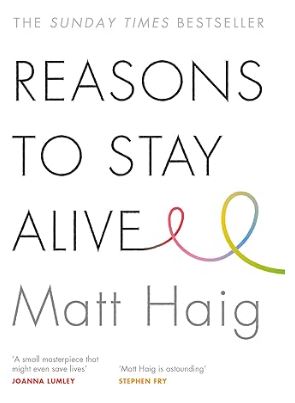For those of us who are fortunate to be well in mind and body it is impossible to image entering such a dark place that would drive us to take our own life, but tragically suicide and depression is on the increase in the UK, especially in men.
Suicide has taken two of my family and another made an attempt. Although my family losses were not within my immediate close circle (i.e. child, parents, sibling, partner), we were conscious of the rollercoaster that my extended family were inevitably caught up in over many years. We felt their anguish and were frustrated with helplessness at not being able to relieve the situation in some way.
Mental health, depression and suicide is a vast and complex subject and as someone who doesn’t work in this area, I would never dream of attempting to theorise about it. However, my experience and observations, albeit from a slight distance, tell me that suicide is always very traumatic, devastating and leaves a very specific hole.
Sometimes, incomprehensibly, there no discernible health issue and a person ends their life totally unexpectedly. The nearest and dearest are then left adrift on an open sea wondering if their loved one had been depressed for some time and they’d not detected it, or whether it was indeed a few seconds moment of madness that led to their untimely demise. Whatever the circumstances, the longing to put the clock back must be intense.
It would be easy to presume that someone who chooses to end their life has fallen down one of life’s holes – debt, relationship issues, unemployment, social isolation, addiction etc. but often it is none of these, and in fact they may have everything to live for, but serious depression distorts their thoughts and masks their ability to see this. It can affect anyone from super-rich to destitute, highly intelligent to ordinary Joe Bloggs, no one is immune.
The grief for those left behind may be far more complicated than the stages of normal loss. Loved ones must manage the invasion of privacy during initial investigations of the death and attempt to come to terms with the traumatic circumstances. They need to inform family and friends thus having to repeatedly relay the ordeal. There may be feelings of guilt wondering whether they could have prevented it in some way or other and struggle to live with the ‘why?’ question. Relationships can be strained and even blame may creep in. There may be a feeling of isolation or awkwardness when others do not know what to say when they see you after your loss or when you return to work.
Thankfully mental health is now an everyday subject and one for which the totally unjustified shame is diminishing. For once social media is doing a good job of recalling people’s individual experiences of mental health problems. Everyone is different and mental health issues manifest themselves in numerous different ways. As has been well advertised, difficult though it may be “It’s OK not to feel OK” and to seek help and listen to your close friend’s concerns. If you are that supportive friend, ask how they are doing and then ask them again. There may be hesitancy in answering the second time round which could indicate a flag being waved.
If you or a loved one are in that dark place, do seek help and read Matt Haig’s astounding book ‘Reasons to Stay Alive’ spat out from the heart from someone who has suffered mental health torment over many years BUT learnt how to survive and live again.




